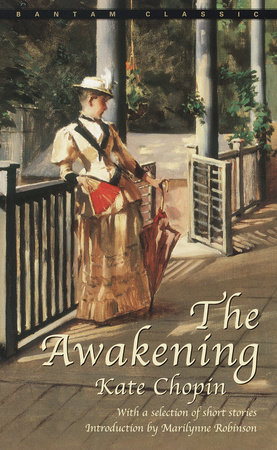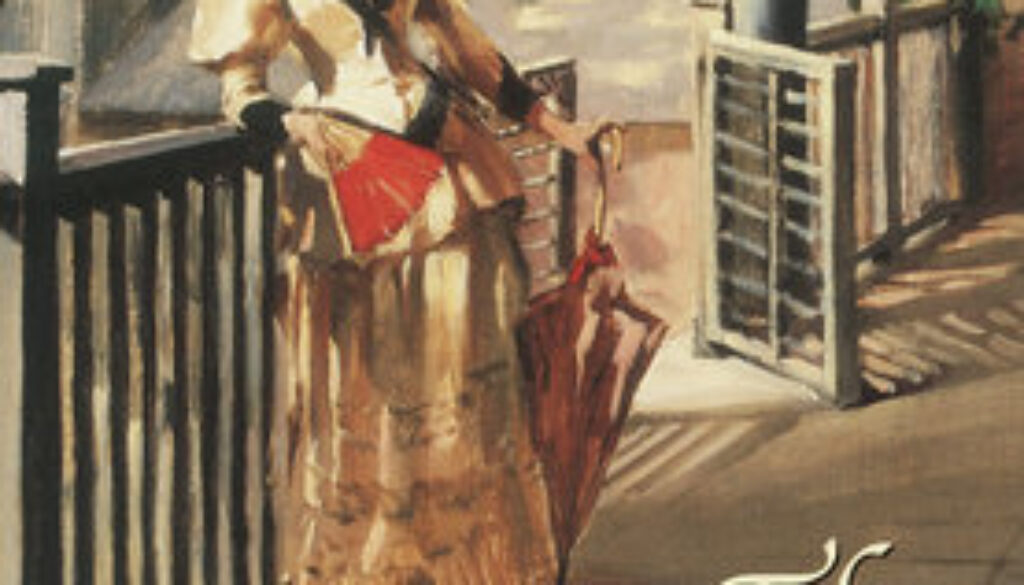Lady Janet’s Cure for Adulterous Longings
Kate Chopin’s novel The Awakening, published in 1899, is one of the most widely read, frequently taught, and earnestly discussed books in the history of American literature. But in the 1950s, it was out of print, as were all of Chopin’s books. Only one of her stories, Desiree’s Baby, was included in many anthologies.

That changed in 1962 when Edmund Wilson selected her as one of thirty-odd authors discussed in his study of Civil War literature, Patriotic Gore. Did I mention that Edmund Wilson was my grandmother’s cousin? I believe I may have – sixty or eighty times.
Wilson was annoyed that he had to read Chopin’s works on microfilm at the Library of Congress, and he suggested to Per Seyersted, a Norwegian studying in the United States, that he focus his studies on her.
Seyersted published a volume of Chopin’s complete works and a biography which were reviewed by Linda Wolfe in the New York Times and soon there were many editions of The Awakening available in paperback.
The book is truly a masterpiece, and although the protagonist, Edna Pontellier, has an affair and ultimately takes her own life, it’s not a tragedy; it’s too full of delight – not erotic, but sensuous, like all of Chopin’s work.
In Patriotic Gore, Wilson quotes a letter found among Chopin’s papers from Lady Janet Young in England. Lady Janet suggests that one of the characters, a medical man, should take Edna’s husband aside and talk to him.
“Ponteller,” she has him say, “like most men you fancy that because you have possessed your wife hundreds of times she necessarily long ago came to entire womanly self knowledge – that your embraces have as a matter of course aroused whatever of passion she may be endowed with. You are mistaken. She is just becoming conscious of sex – is just finding herself compelled to take account of masculinity as such…
“Assist this birth of your wife’s womanliness,” Lady Janet has the doctor advise. “Be tender, let her know that you see how Robert, Arobin affect her. Laugh with her over the evident influence of her womanhood over them.”
Lady Janet suggests that Edna, “…instead of guiltily saying, ‘I fear I love that man,’ shall say within herself with no cause of guilt – ‘How that man’s masculinity stirs me’ – say it above all to her husband.”

Lady Janet encloses a letter from an English physician, Dunrobin Thomson, who says the book “has stirred me to the soul.”
Dunrobin suggests that Edna needs to distinguish between passion and love. “…if she esteems and respects her passional capacity as she does her capacity to be moved by a song or a sonnet, or a great poem, or a word nobly said – she is safe. She knows that that thing is. She is no more ashamed of it than of her responsiveness to any other great appeal. She knows that it does not touch her wife-life, her mother-life, her self-hood. It is not ‘naughty’.”
As for Chopin herself, her attitude was one of supreme insouciance. “Having a group of people at my disposal, I thought it might be entertaining (to myself) to throw them together and see what would happen. I never dreamed of Mrs. Pontellier making such a mess of things and working out her own damnation as she did.
“If I had the slightest intimation of such a thing I would have excluded her from the company.”
